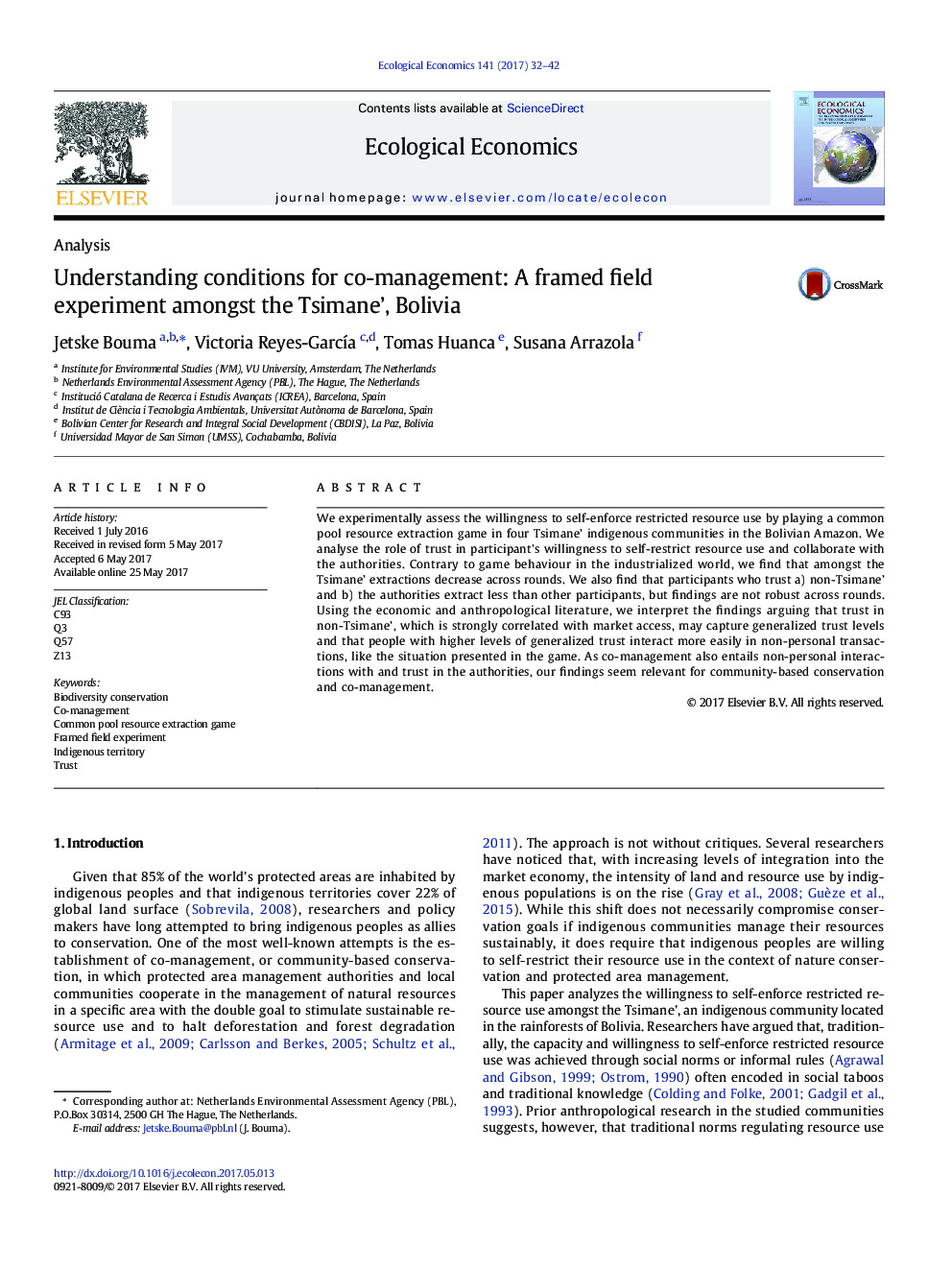| Article ID | Journal | Published Year | Pages | File Type |
|---|---|---|---|---|
| 5048649 | Ecological Economics | 2017 | 11 Pages |
We experimentally assess the willingness to self-enforce restricted resource use by playing a common pool resource extraction game in four Tsimane' indigenous communities in the Bolivian Amazon. We analyse the role of trust in participant's willingness to self-restrict resource use and collaborate with the authorities. Contrary to game behaviour in the industrialized world, we find that amongst the Tsimane' extractions decrease across rounds. We also find that participants who trust a) non-Tsimane' and b) the authorities extract less than other participants, but findings are not robust across rounds. Using the economic and anthropological literature, we interpret the findings arguing that trust in non-Tsimane', which is strongly correlated with market access, may capture generalized trust levels and that people with higher levels of generalized trust interact more easily in non-personal transactions, like the situation presented in the game. As co-management also entails non-personal interactions with and trust in the authorities, our findings seem relevant for community-based conservation and co-management.
